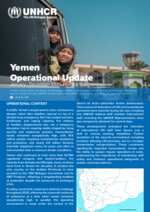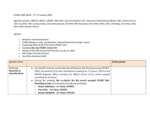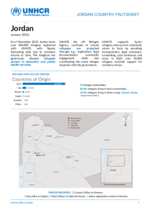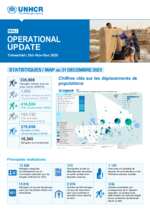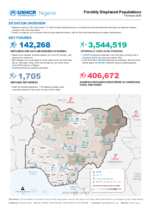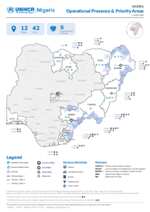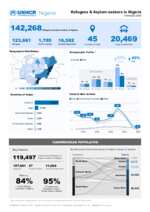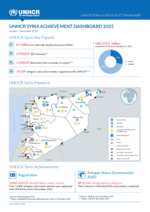Search form
Number of results: 10000
Sort by:
-
Yemen UNHCR Operational Update | End-of-Year Update
documentNews and Achievements about UNHCR´s work in Yemen (January - December 2025) | End-of-Year UpdatePublish date: 26 February 2026 (7 hours ago)
Create date: 25 February 2026 (8 hours ago) -
Lebanon: Inter-Agency - LRP 2026 Shelter Sectors indicators definitions
documentLebanon: Inter-Agency - LRP 2026 Shelter Sectors indicators definitionsPublish date: 26 February 2026 (7 hours ago)
Create date: 26 February 2026 (1 hour ago) -
Lebanon: Inter-Agency - LRP Shelter Sector Logframe 2026
documentLebanon: Inter-Agency - LRP Shelter Sector Logframe 2026Publish date: 26 February 2026 (7 hours ago)
Create date: 26 February 2026 (1 hour ago) -
CPGBV SWG Jordan MoM Jan 2026
documentCPGBV SWG Jordan MoM Jan 2026Publish date: 26 February 2026 (7 hours ago)
Create date: 26 February 2026 (43 minutes ago) -
Jordan: Country Factsheet (January 2026)
documentJordan: Country Factsheet (January 2026)Publish date: 25 February 2026 (1 day ago)
Create date: 25 February 2026 (21 hours ago) -
Oprational Update_UNHCR Mali-4é trimestre 2025
documentPublish date: 25 February 2026 (1 day ago)
Create date: 25 February 2026 (15 hours ago) -
UNHCR Nigeria Forcibly Displaced Populations Dashboard - 1 February 2026
documentDisplacement OverviewPublish date: 25 February 2026 (1 day ago)
Create date: 25 February 2026 (20 hours ago) -
UNHCR Nigeria Operational Presence & Priority Areas Map - 1 January 2026
documentOperational PresencePublish date: 25 February 2026 (1 day ago)
Create date: 25 February 2026 (20 hours ago) -
UNHCR Nigeria Refugees & Asylum-seekers Dashboard - 1 February 2026
documentDisplacement OverviewPublish date: 25 February 2026 (1 day ago)
Create date: 25 February 2026 (20 hours ago) -
UNHCR Syria Key Figures
documentUNHCR SYRIA ACHIEVEMENT DASHBOARD 2025Publish date: 25 February 2026 (1 day ago)
Create date: 25 February 2026 (22 hours ago)
